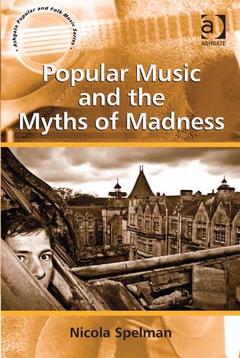Description
Popular Music and the Myths of Madness
Author: Spelman Nicola
Language: English
Keywords
musical; gesture; thomas; szasz; death; family; lou; reed; non-harmony; tones; Young Men; Pop Star; Pitch Fork; Histoire De La Folie; Protagonist’s Parents; Vice Versa; Sociopathic Personality Disturbance; Country Music; Contemporary Society; Leonard Frank; Mental Illness; Anti-psychiatric Ideas; Bowie’s Character; Involuntary Confinement; Fool Identity; Chord Vi; Dark Side; La La La; Psychiatric Confinement; Surgical Lobotomy; Non-harmony Tones; Bates’s Character; Tonic Major Chord; Social Judgement Theory; Spoken Vocal
Approximative price 177.01 €
In Print (Delivery period: 14 days).
Add to cartPublication date: 05-2012
Support: Print on demand
Approximative price 61.25 €
In Print (Delivery period: 14 days).
Add to cartPublication date: 10-2016
· 15.6x23.4 cm · Paperback
Description
/li>Contents
/li>Biography
/li>



